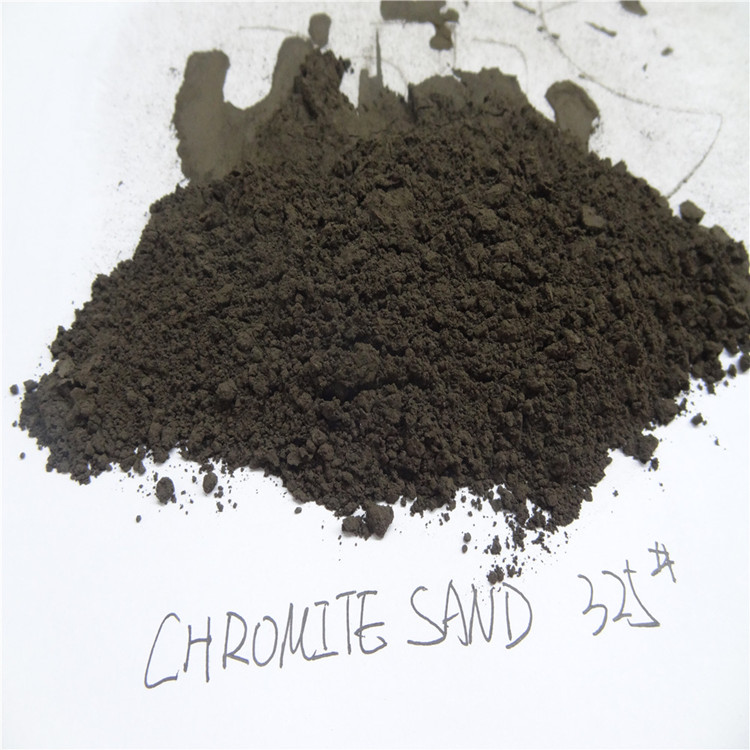Chromite Powder as a Casting Coating in Foundry Applications
Chromite powder (chromite sand) is widely used in foundries as a refractory coating for molds and cores, especially in steel and high-alloy castings. Its high melting point, thermal stability, and resistance to metal penetration make it an excellent choice for improving casting surface quality and reducing defects.
1. Key Properties of Chromite Powder for Casting Coatings
High refractoriness (melting point ~1900–2100°C) → Suitable for steel, stainless steel, and high-manganese castings.
Low thermal expansion → Reduces veining and cracking in molds.
Chemical inertness → Resists reaction with molten metal (reduces burn-on defects).
Good thermal conductivity → Helps in uniform cooling of castings.
High density (~4.5 g/cm³) → Provides better metal penetration resistance compared to silica sand.
2. Benefits of Using Chromite in Casting Coatings
— Prevents metal penetration
— Improves surface finish
— Reduces veining and hot tearing
— Suitable for large and heavy castings
— Environmentally safer than zircon sand
3. Typical Chromite Coating Formulations
(A) Water-Based Chromite Coating
| Component | Percentage | Function |
|---|---|---|
| Chromite powder (200-300 mesh) | 40-60% | Refractory base |
| Water | 30-50% | Carrier liquid |
| Bentonite / Kaolin clay | 2-5% | Binder |
| CMC / Xanthan gum | 0.5-2% | Suspension agent |
| Defoamer / Preservative | 0.1-0.5% | Prevents bubbles & spoilage |
(B) Alcohol-Based Chromite Coating (for quick drying)
| Component | Percentage | Function |
|---|---|---|
| Chromite powder (200-325 mesh) | 45-55% | Refractory base |
| Isopropanol / Ethanol | 40-50% | Fast-drying carrier |
| Phenolic resin / PVB | 3-6% | Binder |
| Bentonite (Li-based) | 1-3% | Suspension aid |

